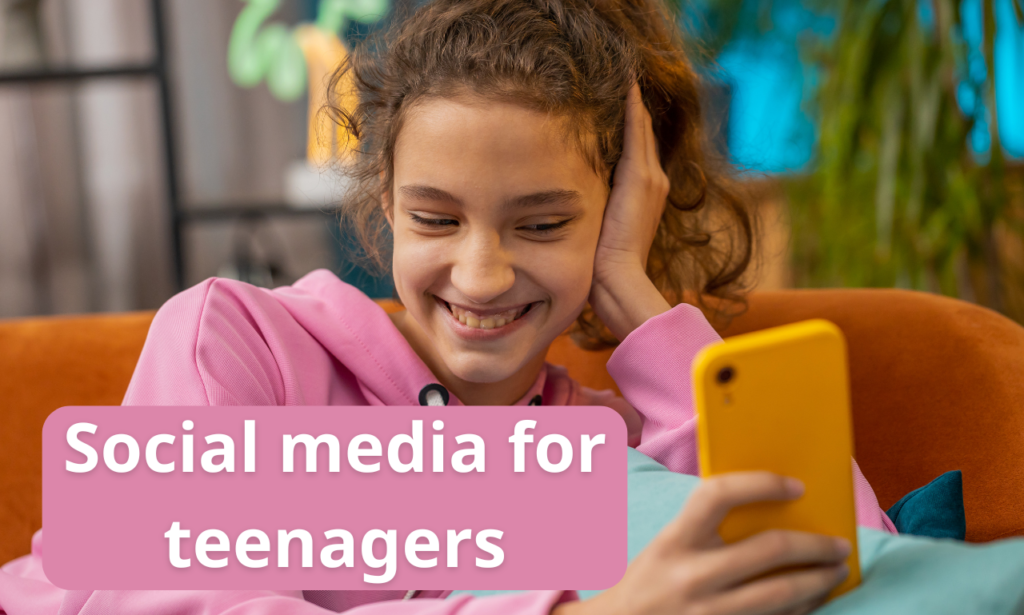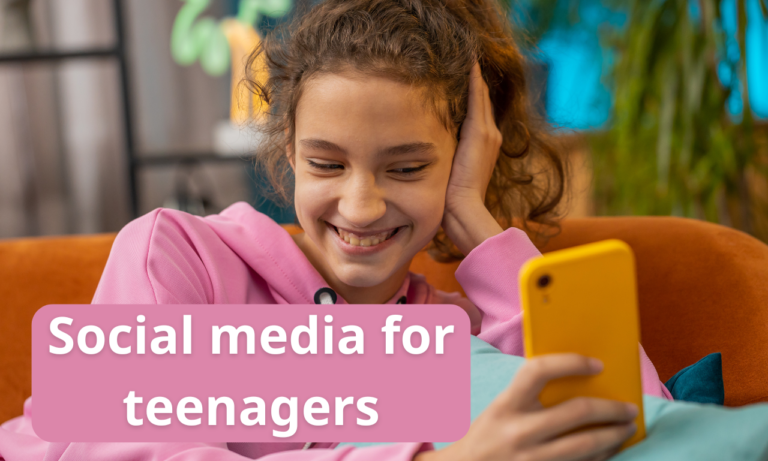The impact of social media on the lives of teenagers
In recent times and in the current digital age, social media has become an integral part of the lives of most teenagers.Teenage mental health problems have increased, and some experts question the extent to which the use of social media is responsible for this.As a parent, it is essential to know the impact of social media on your teen’s mental health and how to explore this modern advanced landscape. In this article, we will investigate the relationship between youth and social media, the possible negative effects, and what parents can do to support teenagers.
Psychological effects of adolescents
Based on the research received, there are several negative psychological effects that may result from the use of social media by adolescents:
Depression and anxiety
Several studies have shown a strong correlation between social media use and increased rates of depression and anxiety in adolescents. Excessive immersion in the use of these platforms is shown to be associated with low self-esteem, a sense of isolation and psychological loneliness, factors that increase the risk of developing mental disorders such as depression and anxiety.
A recent medical study found that the use of popular social networking sites such as Facebook, Instagram and Snapchat is associated with the appearance of depressive symptoms in adolescents.
Another study also indicated that the long time spent by adolescents on social media and watching TV is associated with higher rates of depression and anxiety in them.
Feeling of loneliness
Moreover, research has found that interacting with others while using social media can reduce loneliness and isolation in adolescents. However, the high level of use of these platforms may lead to a decrease in the time and effort spent on direct personal communication, which increases feelings of psychological loneliness.
The impact of social media on self-esteem
Social media also has a huge impact on users ‘ self-esteem. There are positive and negative aspects of this effect:
Positive aspects
Social media can boost self-esteem in several ways:
- It provides a platform for individuals to express themselves and participate in communities of common interests, giving them a sense of acceptance and belonging.
- It allows individuals to interact, communicate with others, receive support and encouragement, and this can enhance their self-confidence
- They help to develop social and communication skills, which enhances the individual’s ability to interact positively with others .
- Individuals can use social media to promote themselves, their talents and achievements, and this enhances their self-esteem
Negative aspects
However, there are negative aspects of the influence of social media on self-esteem:
- Social comparison: users are constantly exposed to idealized images and achievements of others, which can lead to a feeling of dissatisfaction with oneself and low self-esteem
- Visual interactions such as likes and comments may become a measure of personal value for some, which negatively affects self-esteem.
- Constant exposure to idealized images and behaviors on these platforms can lead to body image disorders and depression .
- Excessive time spent by individuals on social media at the expense of real personal interactions can impair social relationships and positive interaction .
The amount of time teenagers spend on social media
Instagram Facebook according to a 2022 survey of 13-to 17-year-olds, 35% of teenagers use at least one of five social media platforms (YouTube, TikTok, Facebook, Instagram, Snapchat) more than several times a day.
Another study showed that teenagers spend an average of 9 hours a day on the internet. At the same time, rates of depression among young people have reached record levels.
According to media reports, children from 11 to 15 years old spend from 6 to 8 hours a day in front of screens of all kinds.
Keeping teenagers safe on social media
How to keep teenagers safe on social media:
- Preparing a family plan for using social media
Establishing clear rules with teenagers about using social media would help achieve a healthy balance. Experts also advise to prepare an agreed family plan that will include when to use technology at home and what rules to follow.
- Determining the right time to use social media
Teenagers are advised to maintain a balance between following social media and other leisure activities to ensure their psychological health. Reasonable limits should also be set for the use of technology, including not allowing its use during meals or school homework.
- Encourage staying away from social media for periods
Teenagers admit that the idea of staying away from social media makes them very anxious. So, they should be encouraged to try it for specific periods of time to discover the health benefits.
- Providing psychological and social support
Social media makes it possible for teenagers to create online identities, chat with others and form social networks. Such networks can provide an opportunity for adolescents to get support from other people. Therefore, it is important to encourage teenagers to use these features in a positive and supportive way.
- Education about online safety and Privacy
Teens should be educated about online safety standards, privacy settings, and the importance of maintaining a positive digital footprint. They should also be instructed not to trust everything that is posted on social media and take the necessary caution.
- Promote open communication with adolescents
Parents are advised to maintain open and positive communication with adolescents, encouraging them to share their negative and positive experiences on social media. Judgments should also be avoided when the child raises any questions.
- Caution about possible risks
Social media offers teenagers great opportunities, but it is accompanied by serious risks such as cyberbullying and forms of peer violence. Therefore, adolescents should be made aware of these risks and take care of their safety.
Conclusion
In general, the combination of setting clear rules, maintaining open communication, education about safety and privacy on the internet, and warning about possible dangers will help keep teenagers safe on social media. Parents and educators must find the right balance to protect their children without completely isolating them from these technologies that have become an integral part of their lives.


